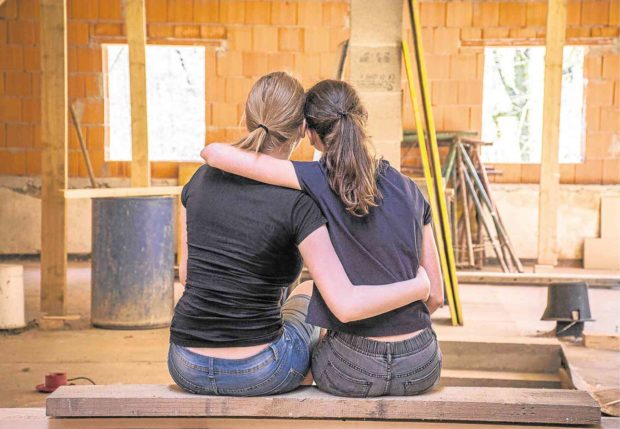Love thy Neighbor
Love your neighbor as yourself.” While this famous Bible verse generally refers to our rapport with all fellowmen, it also proves to be a sound advice when applied to construction.
Often, our closest next-door neighbors are our default go-to person whenever we have problems at home. Apart from our family and friends, they are the ones who can offer us immediate assistance in case of emergency.
So if you’re in the process of building a new home or renovating an existing one, it would be wise not to get on the bad side of your neighbors.
Considering this, how could you, as a homeowner, minimize the inconvenience that your construction works may cause on your neighbors? While preventing all nuisances is next to impossible, there are several measures that we can carry out to minimize the hassle.
Hire a surveyor
Though often omitted, hiring a surveyor before designing and constructing a new structure is always smart.
A surveyor will be able to mark out onsite the actual boundaries of your lot. He or she will be able to confirm the details of your land title. This professional would also be able to tell you zoning regulations in the area and guide you to prevent violations. By getting a surveyor, you’ll be able to determine possible encroachment issues even before you lay the first stone of your house.
According to the Philsurv Geodetic Services, it is even better to have your land surveyed even before you buy it. Doing this will tell you exactly what you are paying for and help you plan the proper use of your land.
Retain existing perimeter walls
The Urban Redevelopment Authority of Singapore advises the retention of party walls, fire walls and the like for new construction or renovation.
While the construction is ongoing, provide canvass protection along the sides of your house. Do not demolish existing perimeter walls to prevent debris and rainwater from entering your neighbor’s property.
If you are planning to detach two houses presently joined by a party wall, make sure that the resulting bare wall will be repaired. Install a flashing over common party walls to direct rainwater to the proper channel. Doing these will prevent seepage of rain water through your neighbor’s home.
Schedule noisy works
Noisy construction is perhaps the most popular reason for disputes between neighbors in the Philippines. While we cannot avoid noisy construction due to drills, jackhammers and cement mixers, it is best to seek your neighbor’s consideration prior to using these.
By practice, noisy works should not be done at night in the subdivision, when many residents are fast asleep.
When it comes to construction work in condominiums meanwhile, limit these to weekdays. To ensure you won’t bother your neighbor, it is best to discuss with him or her your planned schedule before construction.
Follow Building Code when demolishing
Demolition works are tricky, most especially if you have a lot of neighbors. P.D. 1096, otherwise known as the National Building Code of the Philippines, has dedicated a whole section on this as a guide to contractors and owners.
According to the law, demolition should be done floor by floor as much as possible. Formal notices should be issued to properties proximate to the site.
Shoring, ties and other supports should be added to ensure that the whole structure will not fall apart at once. Electric, water and other utility lines should be disabled prior to demolition. Multiple safety measures should be carried out to prevent damages and accidents from occurring.
Choose neighbor-friendly materials
Even during the design stage of your new house, you should think about the possible effects of your choices on your neighbor.
Avoid shiny roofs that might cause glare and heat gain to your neighbor’s home.
Ensure roof tiles are fastened securely to prevent accidental drops on pedestrians. If your air-conditioners require condenser units outdoors, choose ones that are not noisy.
Make sure your finishes meet P.D. 1096-prescribed fire resistance ratings to prevent the quick spread of fires. Consider that if your house ends up as an eyesore or a hazard, you will not be the only one bearing the brunt of that mistake. The whole neighborhood, too, will have to suffer.
To sum up, you should always be considerate of your neighbors. Once you begin building a home, you should also start building good neighbor relations. Follow the law and neighborhood restrictions to ensure you will not cause any inconvenience to your neighbors.
After all, what good is a beautiful home if you have a horrible rapport with your neighbors? Remember that, though many people work to build your home, it will be you who will face your neighbors every day. So make sure you can face them in the future by respecting their needs now.
(Sources: Matthias Zomer via www.pixabay.com; United Architects of the Philippines. “The National Building Code of the Philippines (P.D.1096).” n.d.; Urban Redevelopment Authority. Be Good Neighbors. Singapore; www.ehstoday.com; www.linkedin.com; The Bible. English Standard Version, Crossway Bibles, 2016)
The author is a licensed architect who studied abroad and currently works for DSFN Architects. She credits her neighbors for helping her family through a snake attack, a vehicular accident, and a freak incident involving fireworks.















